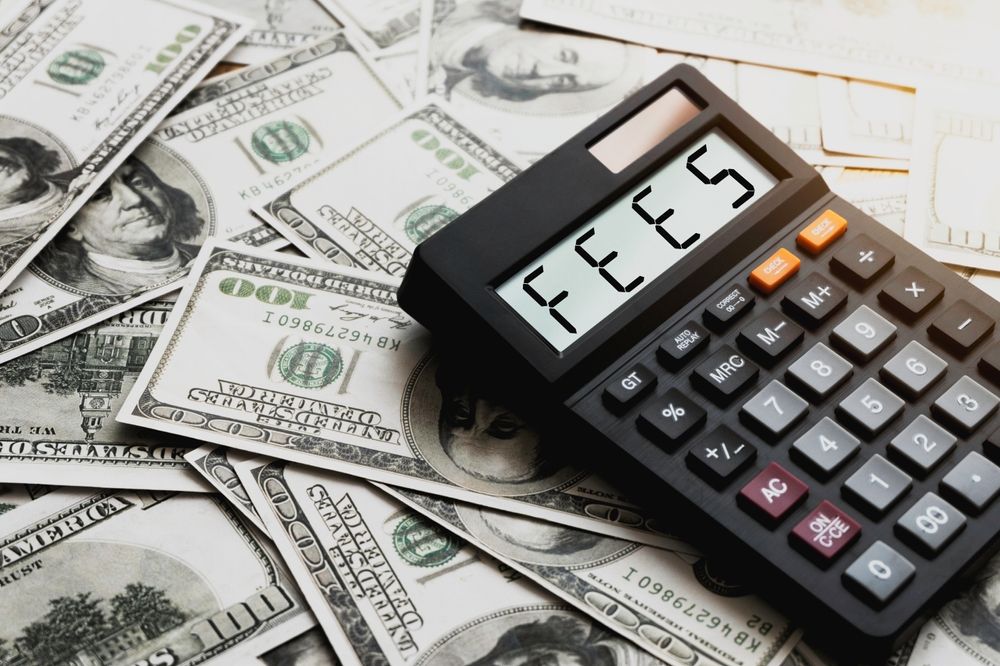Debit cards, widely appreciated for their convenience and security in managing everyday purchases, are often perceived as a straightforward financial tool, free from the tangles of credit card debt. However, this perceived simplicity can be misleading. Hidden fees, tucked discreetly within user agreements and lightly mentioned pamphlets, can undermine your financial health just as effectively as the interest rates on credit cards.
Debit Card Fees
Here’s a breakdown of some common hidden fees:
- Monthly Maintenance Fees: Many banks charge a maintenance fee on accounts not meeting their minimum balance requirements. This fee can be easily overlooked until it appears on your statement.
- Overdraft Fees: While overdraft protection might appear to be a financial safety net, it often comes with a hefty fee whenever the bank covers a transaction that exceeds your account balance.
- ATM Fees: Using a debit card at an ATM outside your bank’s network can result in a surcharge from both your bank and the ATM operator. These fees can add up quickly if you frequently use out-of-network ATMs.
- Foreign Transaction Fees: If you are traveling abroad, purchases or ATM withdrawals in a foreign country can result in fees for currency conversion or international usage.
- Card Replacement Fees: Losing your debit card can lead to a fee for replacement. Depending on your bank’s policy, expedited delivery can incur additional charges.
- Inactivity Fees: Some banks have inactivity fees for accounts with no deposit or withdrawal activity over a certain period.
- Balance Inquiry Fees: Surprisingly, checking your balance at an ATM can result in a fee, particularly if the ATM is not within your bank’s network.
- Insufficient Funds Fee: Unlike overdraft fees, an insufficient funds fee is charged when a transaction is declined due to inadequate funds in your account.
Being aware of these potential fees can help you evaluate the true cost of using your debit card and help you make better banking choices.
Strategies to Avoid Hidden Debit Card Fees
With a clear understanding of the fees involved, here are several strategies to help you avoid these unwelcome charges:
- Choose the Right Bank: Start by selecting a bank that aligns with your financial habits and offers favorable terms. Many banks advertise no monthly maintenance fees, but they might have different requirements to waive these fees, such as maintaining a minimum balance or having direct deposits.
- Keep Track of Your Balance: Maintaining a real-time record of your account balance can help to prevent overdraft fees. Online banking apps often provide balance alerts and tracking tools to help manage your expenditures and avoid overspending.
- Opt Out of Overdraft Protection: Choosing to opt out of overdraft protection means your transactions will be declined if there are insufficient funds. While this might seem inconvenient, it could save you from steep overdraft fees.
- Use In-Network ATMs: Plan your cash needs in advance and use ATMs within your bank’s network to avoid surcharges. If you must use an out-of-network ATM, factor in the additional cost when deciding how much cash to withdraw.
- Be Cautious When Traveling: Notify your bank about your travel plans to avoid unnecessary holds or fees. Consider using a debit card with no foreign transaction fees to minimize charges when traveling abroad.
- Regularly Check Your Statements: Vigilantly review your monthly bank statements to spot any unexpected fees. Promptly contact your bank about any discrepancies or unjustified charges.
- Utilize Mobile Banking Features: Make full use of your bank’s digital tools to monitor your account status, set up alerts for low balances, upcoming payments, and receive other notifications to keep track of your spending and balance.
- Negotiate or Waive Fees: Contact your bank to negotiate the waiver of certain fees, especially if you are a long-standing customer with a good account history. Many banks are willing to waive occasional fees if asked.
- Seek Accounts with No Fees: Some financial institutions offer fee-free checking accounts that come with free debit cards. Online banks and credit unions are often less fee-intensive and can be a good alternative.
Each of these strategies can be tailored to your personal financial situation to help mitigate the risk of incurring unwanted fees.
The Psychological Aspect of Debit Card Use
There is a psychological component to consider when discussing debit card fees. Unlike credit cards, which come with definitive spending limits and often require monthly payments to accumulate good credit history, debit cards directly withdraw from your available funds, presenting an illusion of “free money.” Users may spend more liberally without considering the immediate pull from their bank account.
Additionally, many consumers equate debit card use with the benefits of cash without recognizing the associated costs. This mindset, combined with the automatic nature of withdrawals, can make it easy to fall into patterns that incur unnecessary fees. A mindful approach to spending, characterized by consciously tracking every transaction, can help counteract these tendencies.
Leveraging Technology for Better Financial Management
As technology advances, managing finances and mitigating the risk of fees becomes increasingly accessible. Many banks offer highly intuitive mobile apps that allow customers to manage accounts seamlessly and set alerts for potential fees.
- Automation Options: Consider setting up automatic alerts to notify you of balance thresholds, pending transactions, and low funds to keep a closer watch over your spending habits.
- Budgeting Tools: Many mobile applications provide budgeting tools to help you categorize spending and prevent overspending. These insights can be invaluable in managing your account to prevent unnecessary fees.
- Third-Party Apps: In addition to banking apps, third-party financial tools like Mint or Personal Capital offer users the ability to track income, expenditures, savings, and even investment portfolios, all of which can provide a clearer picture of your financial health as a whole.
Empowering Consumers Through Financial Literacy
The aim of understanding and avoiding debit card fees is to empower you as a consumer. Financial literacy is your best weapon against the complexity and obscurities of modern banking systems. By making informed decisions, leveraging available resources, and scrutinizing your financial habits, you can avoid these unnecessary costs and use your funds with greater efficacy.
Cultivating a proactive attitude towards learning the intricacies of debit card usage benefits more than just your bank account balance. It promotes long-term habits that create a strong financial foundation, ensuring you make the most of your money while avoiding hidden pitfalls. As you navigate financial products and grow more informed about the costs they may entail, vigilant attention and strategic action will guard you against the impact of hidden fees and transform your financial outlook.



